In today's busy world, consistency in exercise often falls by the wayside, much like other beneficial habits. Despite the well-documented advantages of regular physical activity, many people struggle to maintain a consistent exercise routine. This inconsistency is not only a reflection of our modern, fast-paced lifestyles but also of the misconceptions surrounding what it takes to stay fit. The Matters Journaling System was created to help counter-act this in meaningful & sustainable ways.
The Reality of Exercise Neglect
Exercise is widely recognized as essential for maintaining overall health, yet a large percentage of the population does not engage in physical activity regularly. According to the Centers for Disease Control and Prevention (CDC), only about 23% of U.S. adults meet the recommended guidelines for aerobic and muscle-strengthening activities. This statistic highlights a widespread issue: despite the known benefits, the average person is inconsistent at best when it comes to exercising.
One of the main reasons for this inconsistency is the common perception that staying fit requires a significant time investment and an almost obsessive dedication to health and fitness. Many people believe that to see results, they must commit to long hours at the gym, strict diets, and a lifestyle overhaul. This "all or nothing" mentality can be discouraging, leading to a cycle of sporadic effort followed by periods of inactivity.
The Negative Long-Term Effects of Inconsistent Exercise
Inconsistent exercise habits can have significant negative impacts on both physical and mental health over time. Some of these effects include:
Decreased Physical Health: Inconsistent exercise can lead to a gradual decline in cardiovascular health, muscle strength, and flexibility. Regular physical activity is crucial for maintaining heart health, managing weight, and preventing chronic diseases such as diabetes and hypertension. Without consistency, the protective benefits of exercise are diminished.
Increased Risk of Injury: Sporadic exercise can increase the risk of injury. When the body is not accustomed to regular physical activity, sudden bursts of exercise can strain muscles and joints, leading to injuries that might further discourage continued exercise.
Mental Health Impacts: Exercise is known to improve mood and reduce symptoms of anxiety and depression. Inconsistent exercise can lead to fluctuations in these benefits, resulting in periods of improved mental health followed by declines. Over time, this can contribute to a more persistent state of low mood or anxiety.
Lowered Motivation: The irregular nature of inconsistent exercise can make it harder to build and maintain motivation. When results are slow to appear or nonexistent due to a lack of regular effort, it becomes easier to abandon the activity altogether.
The Positive Long-Term Effects of Consistent Exercise
On the other hand, consistent exercise can have profoundly positive effects on both physical and mental health. These benefits include:
Improved Physical Health: Regular exercise strengthens the heart, muscles, and bones, reducing the risk of chronic diseases. It also helps to maintain a healthy weight, boosts energy levels, and improves overall physical function.
Enhanced Mental Well-being: Consistent exercise releases endorphins, which improve mood and reduce stress and anxiety. Over time, these mental health benefits can contribute to a more positive outlook on life and greater emotional resilience.
Better Sleep: Regular physical activity has been shown to improve the quality of sleep, helping individuals to fall asleep faster and enjoy deeper, more restorative rest.
Increased Longevity: Numerous studies have linked regular exercise with a longer life span. Consistently active individuals tend to live longer, healthier lives compared to those who are inactive.
Overcoming the "Health Nut" Misconception
One of the biggest barriers to consistent exercise is the belief that one needs to be a "health nut" to succeed. This misconception can be particularly harmful because it sets an unrealistic standard that many people feel they cannot achieve.
The truth is that successful, long-term exercise habits do not require extreme measures. Even moderate, regular physical activity can lead to significant health benefits. The key is to find an exercise routine that is sustainable and enjoyable.
A Simple Home Workout Routine
To demonstrate that effective exercise doesn’t require expensive equipment or a gym membership, here’s a sample upper-body workout routine that can be done at home in less than 20 minutes, using only body weight and common household items:
- Push-Ups (3 sets of 10-15 reps): Use a chair or countertop for an inclined version if standard push-ups are too challenging.
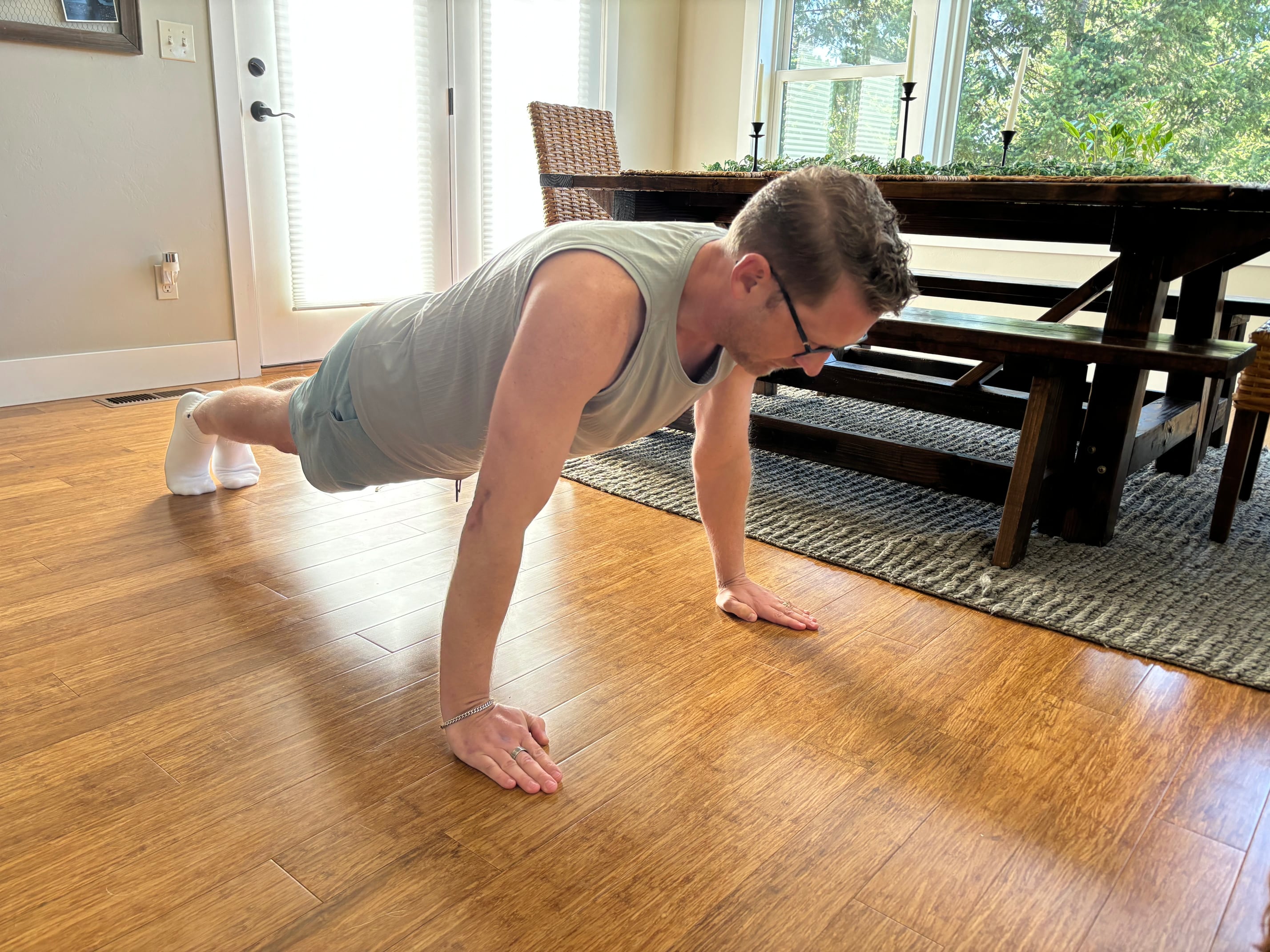
- Tricep Dips (3 sets of 10-12 reps): Use a sturdy chair or the edge of a couch.
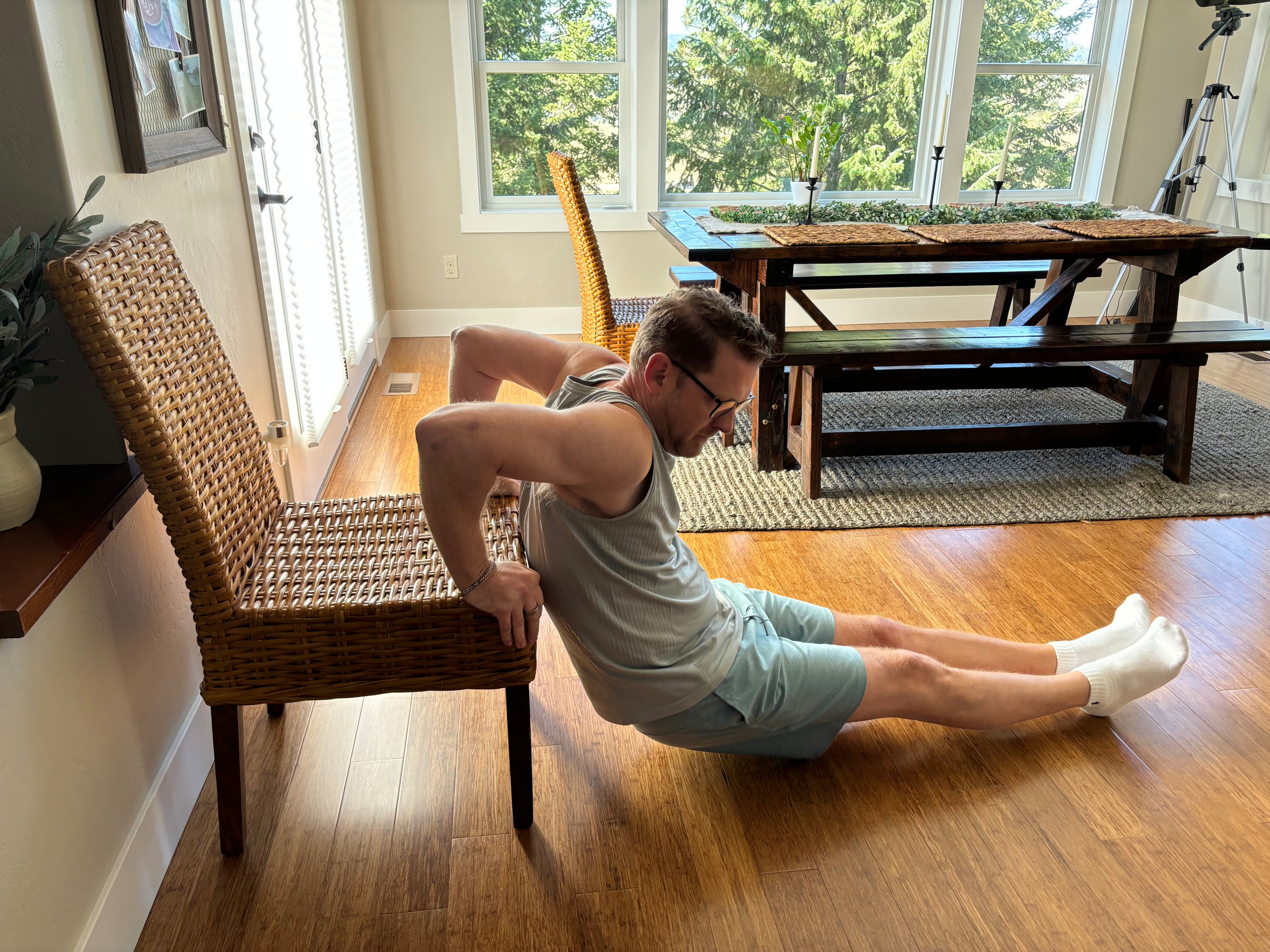
- Plank Shoulder Taps (3 sets of 15-20 taps per side): Hold a plank position and tap each shoulder with the opposite hand, alternating sides.
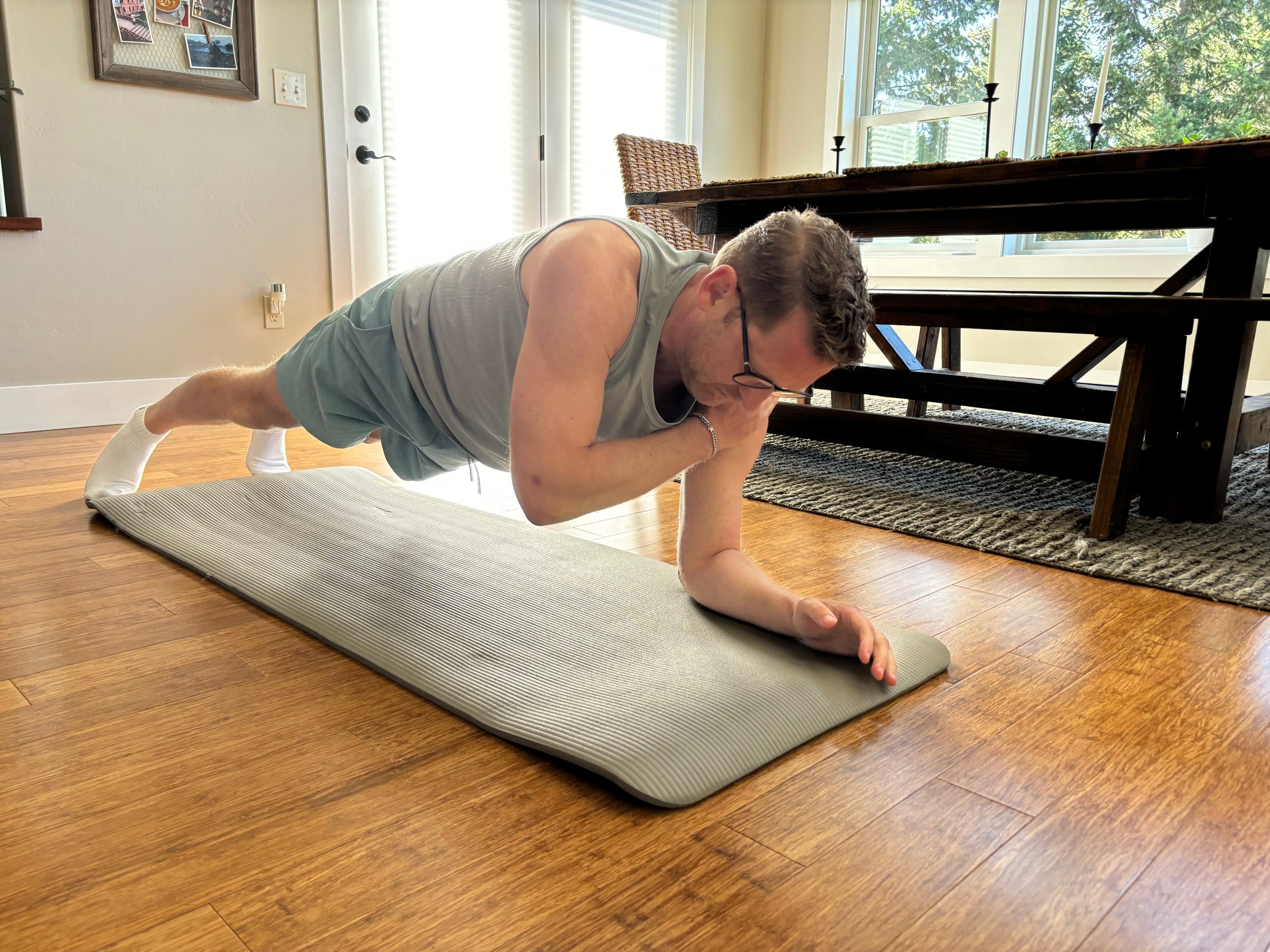
- Inverted Rows (3 sets of 10-12 reps): Use a sturdy table or a broomstick placed between two chairs as a makeshift bar.
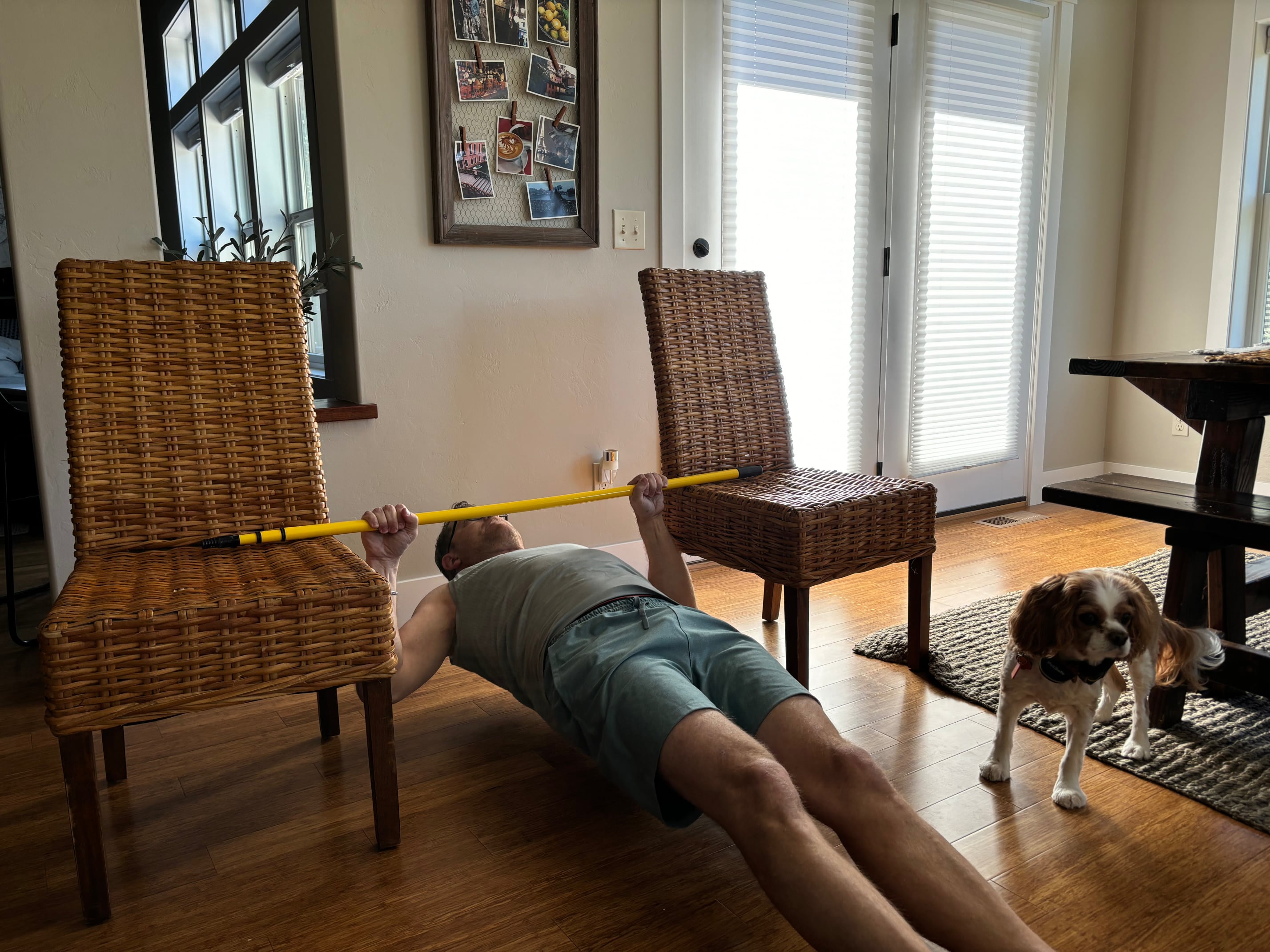
- Bicep Curls (3 sets of 12-15 reps): Use household items like water jugs, a bench, or canned goods. Anything weighty that enough reps will challenge you.
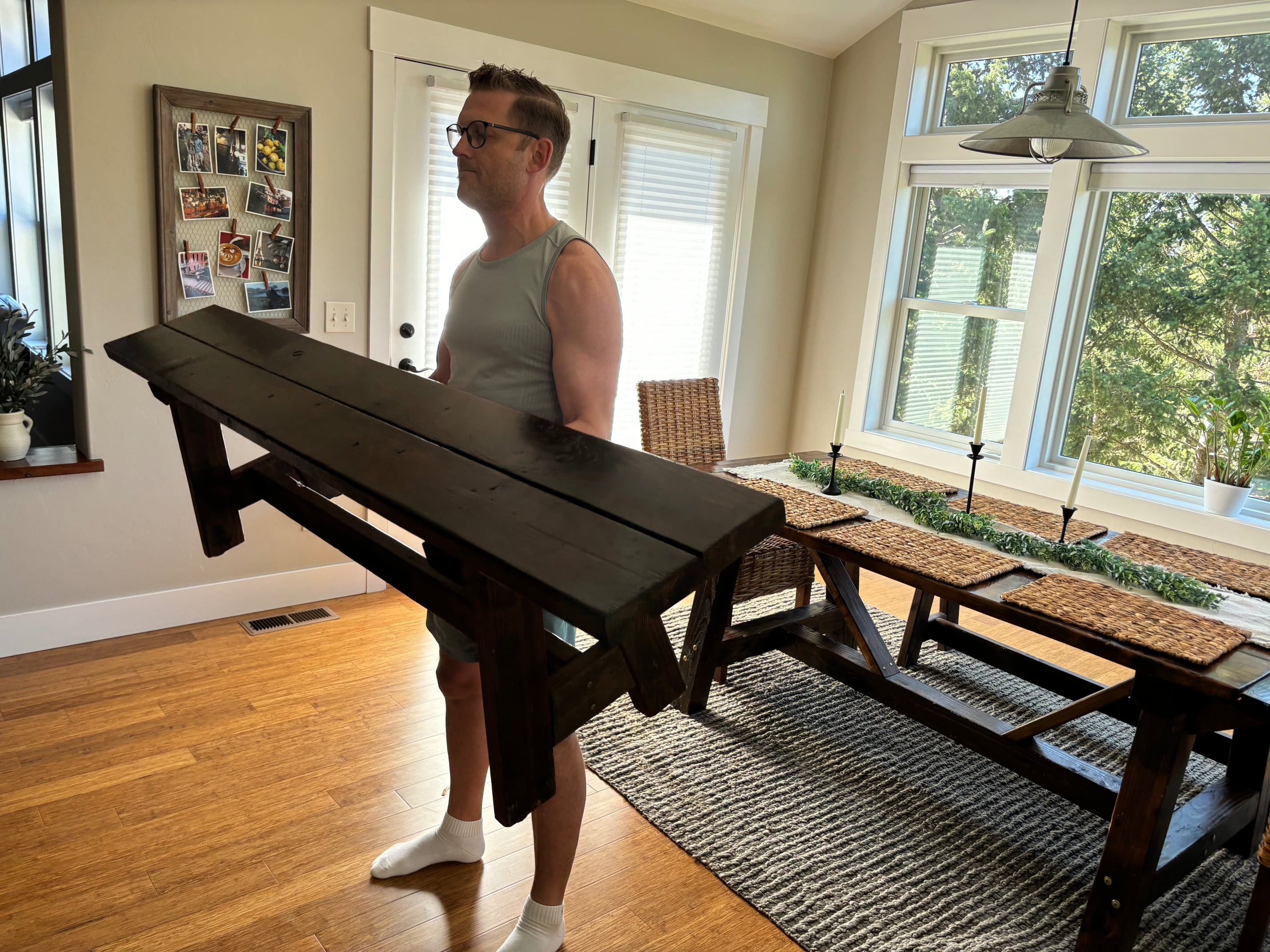
This routine is designed to be simple yet effective, targeting key upper-body muscles with exercises that can be modified to match any fitness level. Hopefully these demonstrate that you don't need to have a gym membership, or even a fully blown workout room to find small success. It is possible, if that's all you have the means for, to keep it simple and still be improving your health. That said, gym memberships, personal coaching, or a home gym certainly do make working out more enjoyable & safer.
Conclusion
The average person may struggle with exercise consistency, but the long-term effects of neglecting regular physical activity are too significant to ignore. The key to overcoming this challenge is to dispel the myth that staying fit requires an all-or-nothing approach. By incorporating simple, sustainable exercise routines into daily life, anyone can experience the profound benefits of consistent physical activity. It’s not about becoming a health nut—it’s about finding balance and making health a priority.
Whether through simple home workouts or other forms of physical activity, the path to consistency in exercise is one that can be accessible and rewarding for everyone. The Matters Journaling System is carefully structured with this in mind. Learn more about Matters, or read through the Getting Started articles, and start setting sustainable and realistic exercise throughout your week. You won't regret it.
